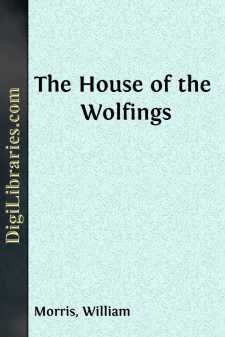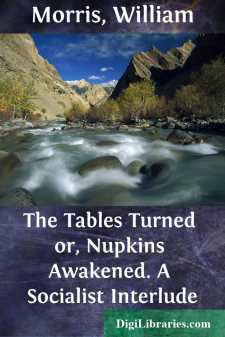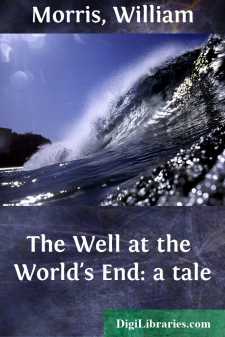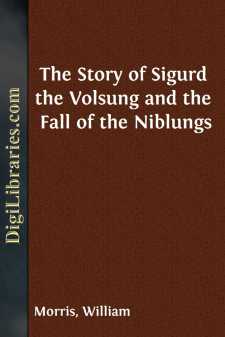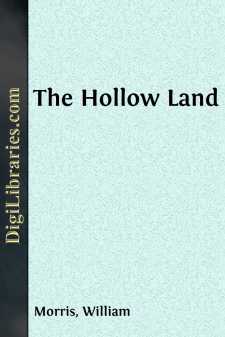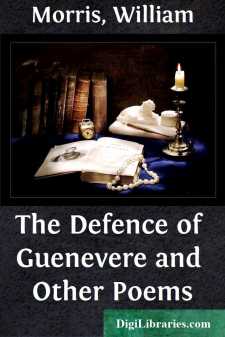Categories
- Antiques & Collectibles 13
- Architecture 36
- Art 48
- Bibles 22
- Biography & Autobiography 813
- Body, Mind & Spirit 142
- Business & Economics 28
- Children's Books 17
- Children's Fiction 14
- Computers 4
- Cooking 94
- Crafts & Hobbies 4
- Drama 346
- Education 46
- Family & Relationships 57
- Fiction 11829
- Games 19
- Gardening 17
- Health & Fitness 34
- History 1377
- House & Home 1
- Humor 147
- Juvenile Fiction 1873
- Juvenile Nonfiction 202
- Language Arts & Disciplines 88
- Law 16
- Literary Collections 686
- Literary Criticism 179
- Mathematics 13
- Medical 41
- Music 40
- Nature 179
- Non-Classifiable 1768
- Performing Arts 7
- Periodicals 1453
- Philosophy 64
- Photography 2
- Poetry 896
- Political Science 203
- Psychology 42
- Reference 154
- Religion 513
- Science 126
- Self-Help 84
- Social Science 81
- Sports & Recreation 34
- Study Aids 3
- Technology & Engineering 59
- Transportation 23
- Travel 463
- True Crime 29
The House of the Wolfings
by: William Morris
Description:
Excerpt
CHAPTER I—THE DWELLINGS OF MID-MARK
The tale tells that in times long past there was a dwelling of men beside a great wood. Before it lay a plain, not very great, but which was, as it were, an isle in the sea of woodland, since even when you stood on the flat ground, you could see trees everywhere in the offing, though as for hills, you could scarce say that there were any; only swellings-up of the earth here and there, like the upheavings of the water that one sees at whiles going on amidst the eddies of a swift but deep stream.
On either side, to right and left the tree-girdle reached out toward the blue distance, thick close and unsundered, save where it and the plain which it begirdled was cleft amidmost by a river about as wide as the Thames at Sheene when the flood-tide is at its highest, but so swift and full of eddies, that it gave token of mountains not so far distant, though they were hidden. On each side moreover of the stream of this river was a wide space of stones, great and little, and in most places above this stony waste were banks of a few feet high, showing where the yearly winter flood was most commonly stayed.
You must know that this great clearing in the woodland was not a matter of haphazard; though the river had driven a road whereby men might fare on each side of its hurrying stream. It was men who had made that Isle in the woodland.
For many generations the folk that now dwelt there had learned the craft of iron-founding, so that they had no lack of wares of iron and steel, whether they were tools of handicraft or weapons for hunting and for war. It was the men of the Folk, who coming adown by the river-side had made that clearing. The tale tells not whence they came, but belike from the dales of the distant mountains, and from dales and mountains and plains further aloof and yet further.
Anyhow they came adown the river; on its waters on rafts, by its shores in wains or bestriding their horses or their kine, or afoot, till they had a mind to abide; and there as it fell they stayed their travel, and spread from each side of the river, and fought with the wood and its wild things, that they might make to themselves a dwelling-place on the face of the earth.
So they cut down the trees, and burned their stumps that the grass might grow sweet for their kine and sheep and horses; and they diked the river where need was all through the plain, and far up into the wild-wood to bridle the winter floods: and they made them boats to ferry them over, and to float down stream and track up-stream: they fished the river’s eddies also with net and with line; and drew drift from out of it of far-travelled wood and other matters; and the gravel of its shallows they washed for gold; and it became their friend, and they loved it, and gave it a name, and called it the Dusky, and the Glassy, and the Mirkwood-water; for the names of it changed with the generations of man.
There then in the clearing of the wood that for many years grew greater yearly they drave their beasts to pasture in the new-made meadows, where year by year the grass grew sweeter as the sun shone on it and the standing waters went from it; and now in the year whereof the tale telleth it was a fair and smiling plain, and no folk might have a better meadow....


